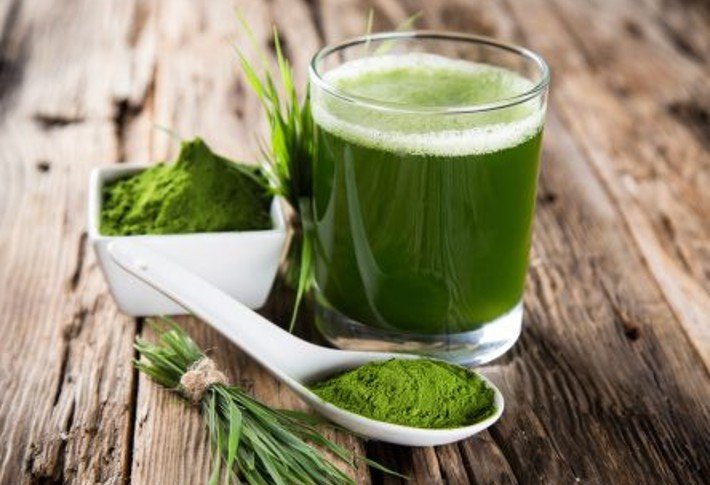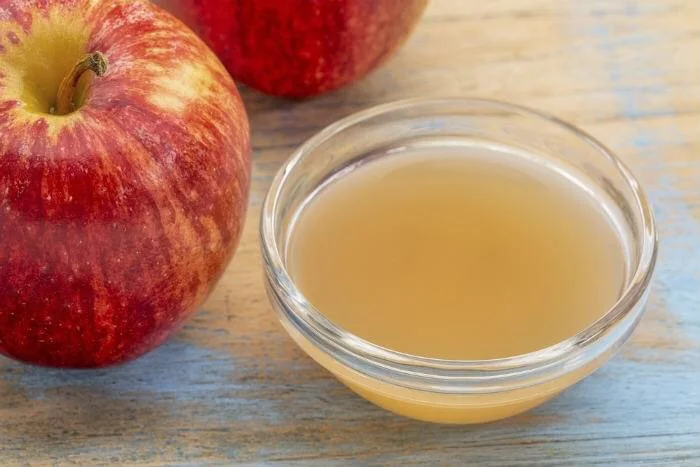Table of Contents
Are you feeling worse after taking apple cider vinegar? You’re not alone. While many people experience benefits from ACV, some may encounter unexpected discomfort. In this article, we’ll explore the reasons behind these adverse reactions and provide practical solutions to help you enjoy the potential benefits of apple cider vinegar without the side effects.
Feeling Worse with Apple Cider Vinegar ?

Alright, I’m back for another short topic! I’m going to answer a question someone had: Why do I feel worse on apple cider vinegar? Now, the “feeling worse” could be stomach pain, nausea, or whatever.
- Question: Why do some people feel worse after consuming apple cider vinegar?
- Possible symptoms: Stomach pain, nausea.
The Two Main Reasons Why
There are two main reasons why you don’t feel good on apple cider vinegar:
Number one: It could be that you have an ulcer.
Number two: It could be that you have gastritis, which is inflammation of the stomach lining.
- Reason 1: Possible ulcer.
- Reason 2: Possible gastritis (inflammation of the stomach lining).
What You Could Do
The good thing is that both of those conditions can be improved, and they both require the exact same protocols.
Number one: Zinc carnosine is key: 50 milligrams three times a day, spread it out, doesn’t have to be with food.

Number two: Chlorophyll. I always recommend wheatgrass juice powder because the chlorophyll in wheatgrass juice powder is an excellent thing for the inner lining of the skin to the entire digestive tract. It’s also good for your sinuses as well.
Number three: Out of all the vegetables, cabbage is the best vegetable for an ulcer as well as gastritis, and you can do this with adding cabbage to your salad, coleslaw, and sometimes sauerkraut, but cabbage is the absolute best thing for an ulcer and especially gastritis. It seems to be digested very well.
Now, the next remedy is called DGL licorice. It can significantly improve the symptoms of gastritis and an ulcer.
And the last thing, and don’t forget this, a very good probiotic, especially if you have gastritis. It seems to work very, very well, and I’ve gotten really good results from that.
- Treatment options for both ulcers and gastritis:
- Zinc carnosine (50mg, 3x daily)
- Chlorophyll (wheatgrass juice powder recommended)
- Cabbage (in salads, coleslaw, or sauerkraut)
- DGL licorice
- High-quality probiotic
A Complication
Now, there’s another complication to this problem that I want to bring up. If you have gastritis, an ulcer, and you have SIBO, that complicates things.
It makes things a little bit difficult because SIBO, small intestinal bacterial overgrowth, occurs when you have good bacteria in the wrong place, the small intestine.
So, it’s competing for nutrients, it’s creating bloating, and the last thing you want to do is add probiotics or fiber as in cabbage. So you can’t do that, you have to do more carnivore.
- Complication: SIBO (small intestinal bacterial overgrowth) alongside gastritis or an ulcer.
- SIBO explanation: Good bacteria in the small intestine (wrong location) leads to nutrient competition and bloating.
- Dietary approach with SIBO: More carnivore-focused, limiting probiotics and fiber.

Now, one of the real good things to get rid of SIBO is to take an acidifier like apple cider vinegar or hydrochloride , but you can’t do that if you have gastritis or an ulcer.
So you’re really going to have to do a bit of a carnivore for a while, and you’re just going to do fasting because fasting is going to be very, very important to allow the digestive system to reset. It’s probably going to be the thing that’s going to help you the most.
- Traditional SIBO treatment (contraindicated with ulcers/gastritis): Acidifiers like apple cider vinegar or hydrochloride .
- Recommended approach with ulcers/gastritis and SIBO:
- Temporary carnivore diet.
- Fasting to reset the digestive system.
Keto After Gastritis or an Ulcer
And I just want to bring up one more thing, as you reduce the symptoms from gastritis and ulcer, which sometimes takes a while, make sure you get unhealthy keto in and intermittent fasting to prevent it from coming back again.
- Long-term prevention after symptom reduction:
- Avoid “unhealthy” ketogenic diets.
- Incorporate intermittent fasting.
Apple Cider Vinegar Benefits

But the majority of people have huge benefits from apple cider vinegar. It has massive benefits for your blood sugars, specifically helping insulin resistance.
- Apple cider vinegar benefits (for most people):
- Blood sugar regulation.
- Improved insulin sensitivity.
Now, despite virtually zero research and studies on apple cider vinegar helping your digestion, I’ve been using it for 29 years, and I can tell you right now, it really helps people with digestion if they have low stomach acid, if they don’t have enough enzymes, if they don’t have enough bile to digest.
Apple cider vinegar is one of the best things to help reduce bloating, indigestion. So we know it helps digestion.
- Apple cider vinegar for digestion (anecdotal evidence):
- May help with low stomach acid.
- May aid in enzyme and bile production.
- May reduce bloating and indigestion.
The best time to take it is before a meal, but a lot of people take it in the morning and at night, so you can pretty much take it any time. I would recommend at least one tablespoon in a glass of water if you’re going to mix it as far as the ratio goes.
- Apple cider vinegar consumption:
- Best taken before meals.
- Can be taken morning and night.
- Recommended dosage: 1 tablespoon in a glass of water.
Now, you can also do it in a powder or a tablet, and I would recommend between four and five tablets, which should be equivalent to about one tablespoon, and you can also add Betaine HCL, which will also give you some additional help as well.
- Alternative forms: Powder or tablets (4-5 tablets = approximately 1 tablespoon).
- Additional support: Consider Betaine HCL.
Summary
There are two main reasons why you might feel worse after taking apple cider vinegar:
- You have an ulcer
- You have gastritis (inflammation of the stomach lining)
What you could do:
- Zinc carnosine (50mg 3x per day)
- Chlorophyll
- Cabbage
- DGL-licorice
- Probiotics
- Let’s say you have gastritis, an ulcer, and SIBO. This complicates things. SIBO occurs when there are good bacteria in the wrong place. The last thing you want to do is add probiotics or fiber (cabbage) in this situation. The best thing to do in this situation may be to do carnivore for a while and fasting. Fasting may actually help the most.
- As you reduce the symptoms from gastritis or an ulcer, you may want to start doing healthy keto and intermittent fasting to help prevent it from coming back again.
A few potential benefits of apple cider vinegar:
• It has potential benefits for your blood sugars
• It may help with insulin resistance
• It may help with digestion
The best time to take apple cider vinegar is before a meal, but a lot of people take it in the morning and at night. You can mix at least 1 tbsp. of ACV in a glass of water, or you can get a powder or tablet ( you may want to take 4-5 tablets). You can also add betaine hydrochloride for additional help
FAQ
Why do I feel tired after drinking apple cider vinegar?
Feeling tired after consuming apple cider vinegar (ACV) may be attributed to several factors:
- Blood Sugar Fluctuations: ACV can lower blood sugar levels, which might lead to fatigue, especially if consumed on an empty stomach or in large quantities. This is particularly relevant for individuals with diabetes or those sensitive to blood sugar changes.
- Digestive Discomfort: Some people experience digestive issues such as nausea or bloating after consuming ACV. These symptoms can contribute to a general feeling of fatigue.
- Acidic Nature: The high acidity of ACV can irritate the stomach lining, leading to discomfort and subsequently a feeling of tiredness as the body diverts energy to manage these symptoms[1][2].
Can ACV make reflux worse?
Yes, apple cider vinegar can exacerbate acid reflux symptoms in some individuals. While some people claim that ACV helps alleviate their reflux, for others, it can cause increased irritation and burning sensations in the esophagus. This is particularly true for those with pre-existing conditions such as gastroesophageal reflux disease (GERD) or a sensitive stomach[3][4].
What does it mean if apple cider vinegar hurts your stomach?
If apple cider vinegar causes stomach pain, it may indicate:
- Sensitivity to Acidity: The acetic acid in ACV can irritate the stomach lining, especially if consumed undiluted or in excess.
- Delayed Gastric Emptying: ACV can slow the rate at which food leaves the stomach, potentially leading to discomfort and pain, particularly in individuals with conditions like gastroparesis[1][2].
- Allergic Reactions: Although rare, some individuals may have an allergic reaction to components in ACV, leading to gastrointestinal distress.
How long does it take to feel the effects of apple cider vinegar?
The effects of apple cider vinegar can vary based on individual health conditions and the reason for consumption. Generally, some effects may be felt within:
- Immediate Effects: Individuals may experience a reduction in appetite or a slight increase in energy shortly after consumption.
- Long-term Effects: Benefits such as improved digestion, weight loss, or better blood sugar control may take several weeks of consistent use to manifest[2][4].
7 reasons you need to drink apple cider vinegar every night before bed
- Blood Sugar Control: ACV may help stabilize blood sugar levels overnight.
- Weight Management: It can suppress appetite, potentially aiding in weight loss efforts.
- Improved Digestion: Drinking ACV may enhance digestion, reducing bloating and discomfort.
- Antimicrobial Properties: ACV has been shown to have antibacterial effects, which can support overall health.
- Heart Health: Some studies suggest that ACV may help lower cholesterol levels.
- Detoxification: ACV is believed to support liver function and detoxification processes.
- Enhanced Nutrient Absorption: It may improve the absorption of nutrients from food[2][4].
Apple cider vinegar side effects on kidneys
Excessive consumption of apple cider vinegar may pose risks to kidney health, particularly for individuals with pre-existing kidney conditions. High levels of acetic acid can lead to:
- Electrolyte Imbalance: ACV can affect potassium levels, which is crucial for kidney function.
- Acidosis: Overconsumption may lead to metabolic acidosis, a condition where the body produces excessive acid, putting additional strain on the kidneys[4][5].
Who should not take apple cider vinegar?
Certain individuals should avoid or limit their intake of apple cider vinegar:
- People with Diabetes: Those on insulin or other blood sugar-lowering medications should consult a healthcare provider due to potential interactions.
- Individuals with Gastrointestinal Disorders: Conditions like ulcers or severe acid reflux may worsen with ACV consumption.
- Those with Kidney Disease: High acidity can exacerbate kidney issues.
- Pregnant or Nursing Women: Safety during pregnancy and lactation is not well-studied, so caution is advised[4][5].
20 benefits of apple cider vinegar
- Supports weight loss
- Helps regulate blood sugar levels
- Improves digestion
- Enhances skin health
- Boosts heart health
- Possesses antimicrobial properties
- May reduce cholesterol levels
- Supports detoxification
- Improves insulin sensitivity
- Reduces bloating
- May help with acne
- Promotes healthy hair
- Enhances nutrient absorption
- May alleviate sore throat
- Potentially reduces cravings
- May improve gut health
- Acts as a natural preservative
- May help with allergies
- Supports oral health
- May improve energy levels[2][4].
Apple cider vinegar benefits
Apple cider vinegar is touted for various health benefits, including:
- Weight Management: It may help reduce appetite and promote fat burning.
- Blood Sugar Regulation: Studies suggest ACV can lower blood sugar levels and improve insulin sensitivity.
- Digestive Health: It may aid digestion and alleviate symptoms of bloating and indigestion[2][4].
Apple cider vinegar side effects liver
While moderate consumption of apple cider vinegar is generally considered safe, excessive intake may lead to liver issues, particularly in individuals with pre-existing liver conditions. The high acidity can potentially affect liver function over time, especially if combined with other factors like poor diet or alcohol consumption[4][5].
Side effects of apple cider vinegar gummies
Apple cider vinegar gummies are a popular alternative to liquid ACV, but they can also have side effects, including:
- Digestive Issues: Some individuals may experience stomach upset or bloating.
- High Sugar Content: Many gummies contain added sugars, which can counteract some health benefits.
- Tooth Enamel Erosion: Even in gummy form, the acidity can still affect dental health if consumed excessively[1][2].
Apple cider vinegar side effects on skin
While ACV can benefit skin health, such as reducing acne, it can also cause side effects:
- Skin Irritation: Its acidic nature can lead to irritation, especially for sensitive skin.
- Chemical Burns: Undiluted ACV can cause burns if applied directly to the skin.
- Allergic Reactions: Some individuals may experience allergic reactions, leading to redness or swelling[1][4].




